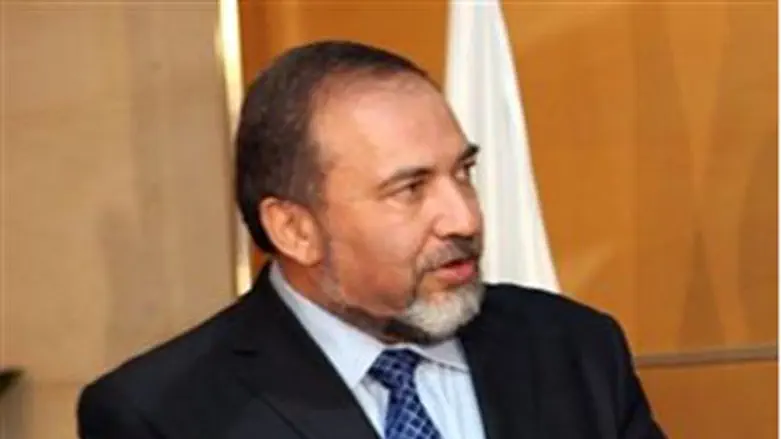
Israeli Foreign Minister Avigdor Lieberman met with British Foreign Secretary William Hague on Wednesday, as did President Shimon Peres.
During the meeting, Hague reiterated the British government’s commitment to urgently resolve the “unacceptable situation”, as he called it, with regard to "universal jurisdiction", a form of lawfare that allows courts to try anyone who lands in their country and is accused of violating human rights or war crimes in any place in the world.
Although instituted as a deterrent to terrorists and dicators, the principle of universal jurisdiction is now being used by anti-Semitic groups to put Israeli government representatives in danger of imprisonment in Great Britain for fighting the terrorism that endangers the British as well as Israel. On Tuesday, it was reported on Israeli television that Minister Dan Meridor cancelled a scheduled trip to London because anti-Israel organizations prepared to demand British courts prosecute him and issue a warrant for his arrest. Opposition leader Tzipi Livni cancelled a trip several months ago and General Almog did not leave his plane when he landed in Britain to speak at a charity function.
In May 2010, United Kingdom Attorney General, Baroness Patricia Scotland, lecturing on lawfare at Hebrew University in Jerusalem, suggested that British law could be amended to give her office the power to veto arrest warrants for foreign political figures accused of war crimes. However, despite promises, there is no immediate change anticipated and this, said a Foreign Ministry official, has "halted UK-Israel bilateral dialogue"
The Foreign Ministry meeting of the two focused on the status of negotiations between Israel and the Palestinian Authority. Leiberman and Hague discussed the need to get beyond the current impasse in the peace talks, and also discussed shared concerns including the threat posed by Iran’s attempts to obtain nuclear weapons capability and the need for international cooperation against terrorism. The two also discussed Middle East regional developments, including the situations in Yemen, Iraq, and Sudan.
The atmosphere at the meeting was positive despite the lawfare issue, and came after several recent controversial statements made by Lieberman. In September when Lieberman told the UN that a peace agreement between Israel and the Palestinian Authority would not be signed in the next few decades.
In October, during a meeting with his French and Spanish counterparts, Bernard Kouchner and Miguel Moratinos, Lieberman told the two: “Before you teach us how to resolve conflicts here, I expect at the very least that you solve all the problems in Europe.”
At the end of their meeting, Hague and Lieberman signed a Film Co-production Agreement which marked another milestone in the extensive cultural cooperation between the two countries.
The Foreign Secretary found timet to visit the Schalit protest tent opposite the Prime minister's residence and call for his release. He also met with PA Prime Minister Salam Fayyad and other PA officials in Ramallah.
